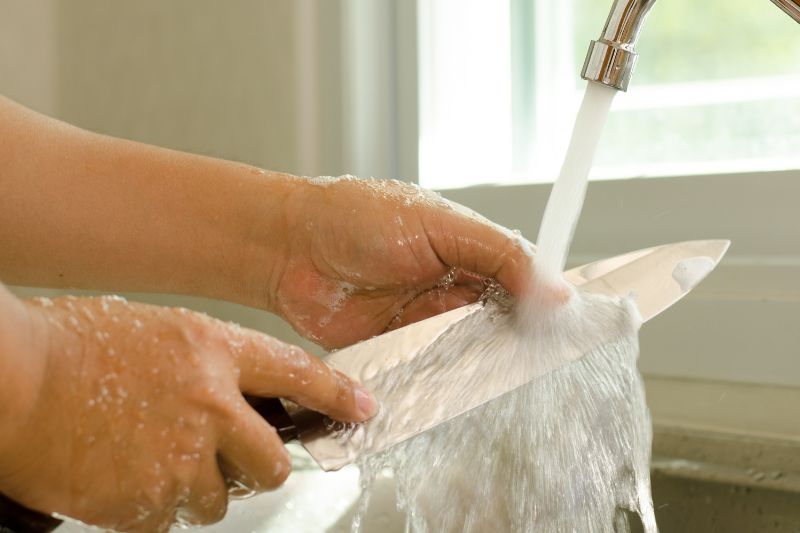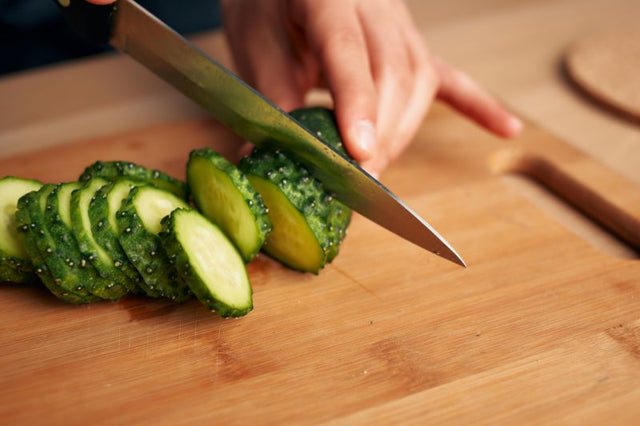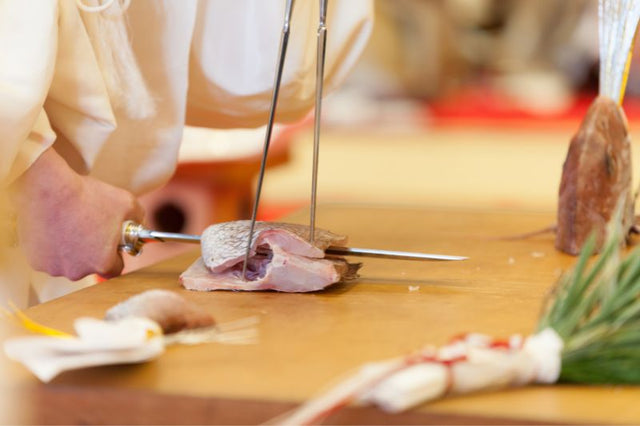While bleach can be a helpful cleaning agent for some surfaces and materials, using bleach on knives is generally not recommended. Knives, especially those made with high-carbon steel, are susceptible to corrosion, pitting, and discoloration when exposed to bleach or other harsh chemicals.

In some cases, bleach may be used to disinfect knives that have come into contact with potentially harmful bacteria, such as those used in commercial kitchens or food processing facilities. However, it is important to use the appropriate concentration and contact time recommended by the manufacturer to avoid damaging the blade or handle material.
It is generally recommended to avoid using bleach on knives and instead opt for milder cleaning solutions, such as soap and warm water. For stubborn stains or rust spots, specialized cleaning products designed for knives, such as rust erasers or polishing compounds, can be used instead. It is always important to follow the manufacturer's cleaning and maintenance instructions to ensure your knives' longevity and performance.
You should avoid using bleach or harsh chemicals on Japanese knives because it can damage the blade and handle. Bleach is a strong oxidizing agent that can cause corrosion, pitting, and discoloration on the blade. The harsh chemicals in bleach can also weaken the handle material and cause it to crack or become brittle over time.
Furthermore, Japanese knives are typically made with high-carbon steel, which can react negatively to bleach and other harsh chemicals. As a result, the blade can become discolored or even develop rust spots if exposed to bleach or other corrosive substances.
Other things to avoid when cleaning Japanese knives
- Harsh or abrasive cleaning agents: Avoid using bleach, harsh detergents, or abrasive cleaning agents that can scratch or damage the blade or handle.
- Stainless steel scrubbers: Do not use stainless steel scrubbers or abrasive pads to clean the blade or handle, as they can cause scratches and damage.
- Dishwashers: Do not put Japanese knives in the dishwasher, as the high heat, harsh detergents, and jostling can damage the blade or handle.
- Soaking for too long: Do not soak Japanese knives for an extended period, as this can lead to corrosion and discoloration of the blade. It is best to clean the knife immediately after use and dry it thoroughly.
- Improper storage: Do not store Japanese knives in a way that can cause the blade to touch other surfaces or objects, as this can dull or damage the blade. It is best to store Japanese knives in a knife block, sheath, or magnetic strip to protect the blade and free from damage.
Overall, it is essential to treat Japanese knives with care and avoid anything that can cause damage to the blade or handle. By using gentle cleaning agents, avoiding harsh scrubbers or abrasive pads, and storing the knives properly, you can help ensure that your Japanese knives remain sharp and beautiful for a long time.
Get Free Bonus Books

Sign up for free to the Japanese Knife Club to get advice and exclusive articles about how to choose Japanese Knives, and tips and tricks for using Japanese knives.
About the author
Kei Nishida
Author, CEO Dream of Japan
Certification: PMP, BS in Computer Science
Education: Western Washington University
Kei Nishida is a passionate advocate of Japanese craftsmanship, a writer, and the founder and CEO of Japanese Knife Co., Japanese Green Tea Co., and Japanese Coffee Co., all part of Dream of Japan.
His journey began with a mission to introduce the world to the exquisite flavors of Japanese green tea. Through Japanese Green Tea Co., he pioneered the import of premium tea grown in nutrient-rich sugarcane soil, earning multiple Global Tea Champion awards. He then expanded into the world of coffee, launching Japanese Coffee Co., the first company to bring Sumiyaki charcoal-roasted coffee to a global audience.
With a deep appreciation for Japanese artistry and tradition, Kei turned his attention to one of Japan’s most revered crafts: bladesmithing. Through Japanese Knife Co., he made handcrafted katana-style knives, created by a renowned katana maker, available outside Japan for the first time. These exceptional knives embody centuries of samurai sword-making expertise, blending tradition with modern functionality for chefs and collectors alike.
Kei’s journey continues as he uncovers and shares Japan’s hidden treasures—one sip, one blade, and one legacy at a time.



















